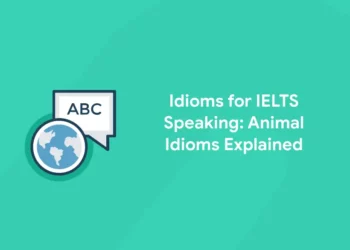Table of Contents
The Central Government enacted the EWS bill in 2019 that provides a 10% reservation in education and government jobs in India for a section of the General category candidates. Know all about the EWS reservation, who all are eligible for the EWS quota, how to apply for EWS reservation in the UPSC exam application, etc. In this blog we will discuss about EWS reservation eligibility.
Click here to attempt a free mock test to ace your UPSC 2020 Preparations
EWS reservation eligibility: Economically Weaker Sections (EWS) Reservation
The government has introduced a 10% EWS reservation for general category candidates. This is for all those candidates who are covered under any reservations (such as OBC, SC, ST and except PH and Ex-servicemen criteria) and belong to economically backward sections.
EWS reservation eligibility: EWS Quota Eligibility
1: Which one of the following is not a Harappan site?
The government has laid down certain eligibility conditions for candidates to be able to claim reservation under this new category. EWS full form is ‘Economically Weaker Section’.
To be eligible for EWS certificate, you will have to satisfy all the conditions mentioned below:
- You should be a ‘general’ candidate (not covered under reservation for SC, ST or OBC).
- Your family’s gross annual income should be below Rs. 8 lakhs. This includes income from all sources such as agriculture, salary, business, etc. for the financial year prior to your applying for the exam.
- Your family should not own agricultural land of size 5 acres or more.
- Your family should not own a residential flat of area 1000 square feet or more.
- Your family should not own a residential plot (in notified municipalities) of area 100 square yards or more.
- Your family should not own a residential plot (other than in notified municipalities) of area 200 square yards or more.
What is ‘Family’ according to the EWS Reservation rules?
For the purpose of this reservation, ‘family’ includes the following:
- The person seeking the reservation.
- His/her parents.
- His/her siblings below the age of 18 years.
- His/her spouse and children below the age of 18 years.
The land or property owned by the family in different locations should be clubbed while checking the eligibility conditions for EWS reservations.
| Related Courses | ||
| RRB Exams Coaching | RRB JE Online Coaching | SSC JE Online Coaching |
| SSC Online Coaching | UPSC Online Coaching | Bank Exam Coaching Online |
How do I apply for EWS reservations?
You can get the EWS certificate from your local government authority (Tehsil). The certificate is actually called an ‘Income and Assets Certificate’ and this is the proof that is required to avail of the EWS reservation.
There is no online method prescribed by the government for getting EWS certificate. You need to go to your local Tehsil or any other local government authority. You will need other documents such as Aadhar Card, Pan Card, bank statements, passport size photo, etc. along with the Income and Assets Certificate
The designated government officer will verify your documents and issue your EWS certificate. The certificate issued only by any of the following authorities will be accepted as proof of a candidate belonging to the EWS category:
- District Magistrate/Additional District Magistrate/Collector/Deputy Commissioner/Additional Deputy Commissioner/1st Class Stipendary Magistrate/ Sub-Divisional Magistrate/Taluka Magistrate/Executive Magistrate/Extra Assistant Commissioner
- Chief Presidency Magistrate/Additional Chief Presidency Magistrate/ Presidency Magistrate
- Revenue Officer not below the rank of Tehsildar and
- Sub-Divisional Officer or the area where the candidate and/or his family normally resides.
Common Questions
Will candidates under EWS get other relaxations in age and the number of attempts?
No, EWS candidates will only get the 10% quota in seats. Other eligibility conditions of the IAS exam such as age limit and the number of attempts shall remain the same as for any ‘general’ candidate.
EWS Reservation Eligibility – Is the criteria uniform across all states in India?
Even though the EWS criterion was brought by the Central Government, states can have their own cut-offs for income. However, for the UPSC 2020 and other central government jobs, the cut-offs prescribed by the Centre will be valid.
Click here to attempt a free mock test to ace your UPSC 2020 Preparations
EWS reservation eligibility: Difference between EWS and OBC reservations
The OBC reservations are for the non-creamy layer section of the Other Backward Classes section. For them, a 27% reservation is given. The EWS is for that section of the ‘General’ classes (not covered under OBC, SC or ST) whose family income is below Rs. 8 lakhs. For them, a 10% reservation in seats is provided.
There will be a separate (lower) cut-off for the EWS candidates, in the same manner for OBC, SC and ST candidates. However, there is no other relaxation with respect to the number of attempts and the upper age limit for applying.
Another difference between EWS and OBC reservations is that in determining the family income for reservations, in the case of OBC candidates, the income of the spouse is not included, whereas it is included in the case of EWS reservation.
Why Practice from Entri?
- Always provides you up to date materials that are created by Entri’s Top Experts.
- Mock tests available in bilingual and other regional languages
- Download Entri to access the unlimited mock test.
Navigating through Entri
- Open your Entri App go to the Railways Tab and check the mock tests.
- You can check courses and Mock test for other examinations as well
- Subscribe to our Mock Test and clear your examination with flying colors.
Ace your preparation. That is where Entri comes in. It helps you to prepare effectively for your Exam.
That will be all from our end at Entri, hope you have benefited from our mock tests and study materials. Entri wishes you all the best for your upcoming examinations. Start your Preparation today itself.
Click here to attempt a free mock test to ace your UPSC 2020 Preparations











